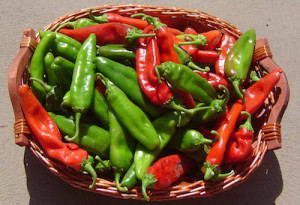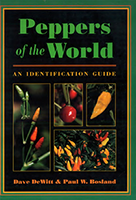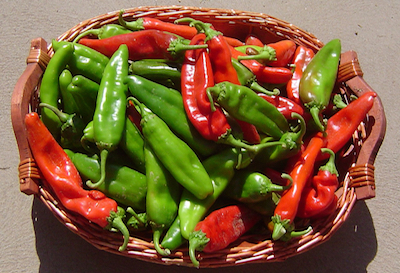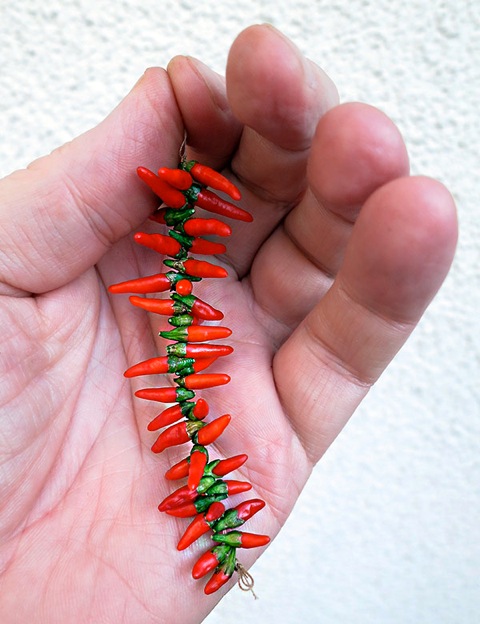One of the most commonly asked questions about Capsicum cultivation is, Can I save seed? The answer is yes, but of course there are qualifications to that statement. First, chile plants will cross-pollinate, meaning that bees or insects visiting the flowers will bring pollen from other varieties. This will cause outcrossing. Outcrossing is common enough that isolation by distance or netting is required for pure seed production. However, if you have only one plant or several plants of only one variety, then saving seed will work as long as your neighbor is not growing peppers as well. If the plants you grow are not hybrids, it is much more likely that the offspring will look like the parents.

However, if you are saving seed from plants that are hybrid plants, the seed will not necessarily produce plants with fruits like those from which you saved the seeds. If you are willing to experiment, you can plant the seeds from the hybrids and see the various fruit shapes and colors they produce.
Thus, one must know whether the variety is a hybrid or an openpollinated (OP) cultivar. If an OP cultivar is kept isolated from different plants with which they can cross, they will produce seed that will come true to type. However, if the cultivar is an Fj hybrid, saving seed is chancy. An Fj hybrid is the seed from two genetically different parents. The parents can be very different or very similar, and technically, the two parents only have to differ by one gene to be labeled an F, hybrid.
Hybrids can be superior to OP cultivars. They are often more uniform and sometimes have greater vigor and yield. But commercial hybrids are developed for another reason. A seed company puts a lot of resources into developing a new cultivar, and they want to protect their investment. If a gardener or farmer saves his own seed, the seed company will not profit. Thus, the seed companies use Fj hybrids to keep individuals from saving seed.
However, “dehybridizing” the F, hybrids is a legal and interesting endeavor. Professional plant breeders have bred a number of beneficial qualities into the hybrids, such as disease and pest resistance and new fruit colors. So one can select individuals and turn them into an OP cultivar. The uniformity of hybrids is sometimes not desirable for home gardeners. To have fruits produced over a longer period of time, instead of one big flush of fruits, can be an advantage. After your new OP cultivar is developed, remember that you must keep it isolated from other pepper plants to produce genetically pure seed.

Editor’s Note: The above excerpt is just a fraction of the wealth you’ll find in Dave’s book, Peppers of the World. You can get a copy of it and many of his other great books here.
Latest posts by Dave DeWitt (see all)
- Enchiladas Verdes con Chile Pasado - 02/08/2023
- Smoked Oysters with Ancho Chile Sauce - 01/13/2023
- Machaca Sierra Madre - 01/11/2023









